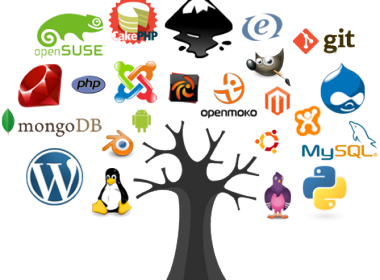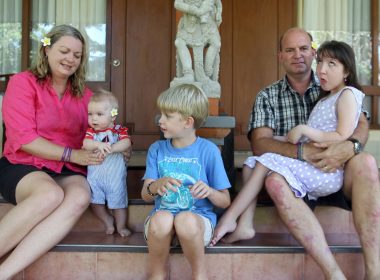In July 2016, Newt Gingrich offered a prime example of cognitive dissonance in a CNN interview. Gingrich argued that statistics showing declining crime rates were wrong because people didn’t say that they felt safer. His argument demonstrated the strong role that feelings play in the way people determine which data and[Read More…]
From the BrainSTEM
The case for open source software
“Free software is a matter of liberty, not price. To understand the concept you should think of ‘free’ as in ‘free speech,’ not as in ‘free beer,’” leading software freedom activist Richard M. Stallman explained via the Free Software Foundation. Open source software is computer software published under a copyright[Read More…]
The disappearance of truth from American politics
American politicians are rarely known for their honesty, and their performances in presidential debates tend to be no exception. From Gerald Ford’s claim in 1976 that “there is no Soviet domination of Eastern Europe” to Mitt Romney’s assertion in 2012 that the Obama administration took 14 days before acknowledging the[Read More…]
The case for eradicating malaria with gene-editing technologies
What if we could rid the world of any species that we didn’t like: The annoying ones, the dangerous ones, and the disease-spreading ones? This seems like a tall order and one that carries a number of ethical quandaries. With the advent of CRISPR/Cas9 gene technologies, the once theoretical bioethics[Read More…]
Standing Desks: Working While Standing Shown to Improve Cognitive Functioning
Standing desks are the latest employee wellness innovation to sweep through workplaces. While student life is typically more active than that of the nine to five grind, the majority of McGill students are familiar with the pains—mental and physical—of sitting down to study for hours at a time, seldom standing[Read More…]
Growth attenuation therapy mimics an ugly past
A recent article published in the New York Times discussed a boy named Ricky, who had been diagnosed with cerebral palsy and static encephalopathy. His permanent brain damage meant he was unable to walk and had very limited eyesight. Ricky is now nine years old, but his body is the[Read More…]
From the BrainSTEM: The leaky pipe
Today, women make up less than 20 per cent of software engineers in the workforce (the precise numbers range depends on who is collecting the statistics and how the observer defines ‘software engineer’). Even in universities, where women outnumber men almost 3:2, only 12 per cent of computer science degrees[Read More…]
From the BrainSTEM: Discovering scientific serendipity in the upcoming general election
The last several years under Prime Minister Stephen Harper’s term have been intolerable for the scientific community. Described by the media as the “War on science,” Harper has muzzled government scientists in an effort to control how and what information is disseminated to the public. These policies are a form[Read More…]
From the BrainSTEM: Montreal Museums Day
As a student, being able to immerse myself in Montreal’s rich network of museums—without having to pay anything—is an exciting proposition. On May 24, when the Board of Montreal Museum Directors hosted the 29th edition of La Journée Des Musées, Montréalais: Montreal Museums Day, I had to participate. The Biodôme,[Read More…]
From the BrainSTEM: The failing U.S. education system
When it comes to training future generations, scientific research has proven that the U.S. education system fails. In 2012, the Organization for Economic Cooperation and Development (OECD) coordinated the Program for International Student Assessment (PISA), a standard that was developed for measuring the performance of 15-year-old students in math, science,[Read More…]













